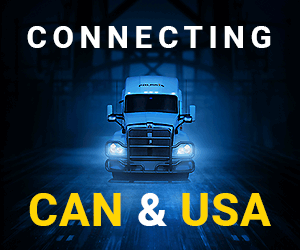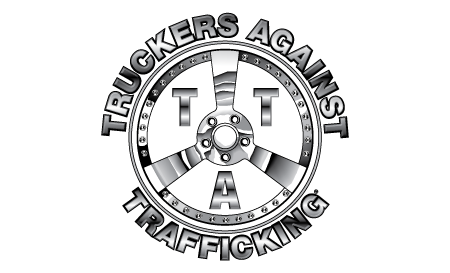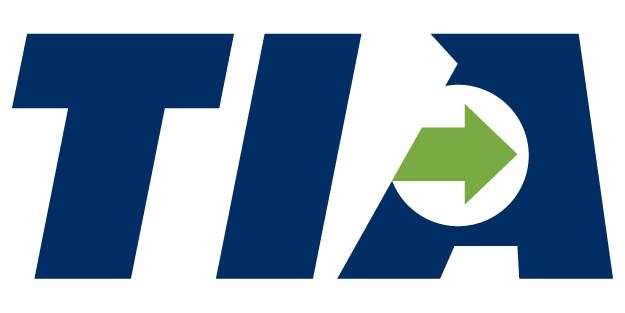Issue 114
 TIA Continues to Address Fraud:
TIA Continues to Address Fraud:
Every year, an estimated $500 million to $1 billion is poached from carriers, shippers, legitimate brokers, and eventually consumers. This theft occurs through freight fraud, unlawful brokering, and shipment diversion, which are all forms of cargo theft. These losses have had a significant impact on the freight industry, and the problem is expected to become more and more common.
This unlawful brokering refers to a predicament where a freight broker assigns a shipment to another broker without the knowledge or legal approval of the cargo owner. Criminals masquerade as legitimate brokers to bid on and receive payments for these loads. Fraudulent brokers can attain multiple Federal Motor Carrier Safety Administration (FMCSA) "MC" numbers - which are required for legitimate brokers - to perpetrate fraud.
To address these challenges, TIA has formed a fraud task force comprised of industry executives and technology entities within the third-party logistics (3PL) industry. The task force will focus on tech-driven solutions to combat fraud, analyze marketplace trends, develop internal strategies, and work on legislative and regulatory solutions. TIA will also engage with FMCSA to address concerns related to fraudulent activities.
Furthermore, TIA has released a free educational course for its members, which aims to educate them about fraud in the supply chain. TIA hopes that access to such a resource will provide another useful tool in combatting fraud in the industry.
Truck Manufacturers Cave to California:
Prominent truck manufacturers have pledged their commitment to California's transition to zero-emission vehicles, even in the face of potential legal challenges, thereby strengthening a crucial climate initiative. In an agreement between the California Air Resources Board (CARB), the Truck and Engine Manufacturers Association, and individual companies, the trucking industry will comply with California's recently implemented clean fleet regulations, despite an ongoing court dispute. In return, companies such as Cummins, Daimler, Ford, and General Motors will receive an extended period to comply with new restrictions.
Furthermore, the agreement obeys California's nitrogen oxide emissions standards for trucks with those set by the U.S. Environmental Protection Agency (EPA) starting in 2027.
This development carries substantial significance as CARB previously voted in April to gradually phase out fossil fuel-powered trucks, targeting what they consider a major source of carbon emissions while also working towards a complete ban on the sale of new gasoline-powered cars. However, California's authority to regulate vehicle emissions has been challenged.
The Western States Trucking Association has sought to prevent the federal government from granting California a waiver to enforce draconian emissions limits. This challenge mirrors the Trump administration's previous attempt to revoke California's regulatory scope, a decision that was subsequently overturned by the EPA last year.
California’s response, to circumvent similar obstacles, the newly announced agreement ensures that the participating companies will adhere to California's standards irrespective of any legal challenges to the state's authority. Additionally, the industry will gain more lenience from a four-year implementation timeline for future regulations provided by California, granting some flexibility in compliance.

Canadian Port Closed:
Starting from July 1st, workers at the Port of Vancouver are set to go on strike due to an ongoing labor dispute between the International Longshore and Warehouse Union (ILWU) and the British Columbia Maritime Employers Association. This strike has the potential to impact certain imports and exports between the United States and Canada.
The ILWU has issued a three-day strike notice for its 7,200 members employed at four Canadian ports. ILWU Canada President Rob Ashton stated that the ports' objective is to diminish the rights and conditions of longshore workers, despite having profited greatly during the pandemic. In response, the BCMEA expressed its desire to make progress and achieve a fair agreement through negotiations.
The strike will affect four ports, including the Port of Vancouver, which is the largest port in Canada. While the majority of goods passing through this port are destined for Canada, around 15 percent of container trade involves imports or exports to and from the United States. Approximately two percent of U.S. imports pass through the Port of Vancouver annually, as reported by the Vancouver Fraser Port Authority. Additionally, three freight railroads—Canadian National, Canadian Pacific, and BNSF—operate at the affected ports.
American Trucking Associations President and CEO Chris Spear expressed concern about the imminent strike, highlighting its unwelcome impact on the U.S. economy during the peak shipping season.
It is worth noting that this strike comes shortly after the ILWU and West Coast ports in the United States reached a tentative labor agreement, facilitated in part by Acting Labor Secretary Julie Su, following months of negotiations and intermittent work stoppages. The potential for prolonged disruptions at major ports in California led to a diversion of container business to the Port of New York and New Jersey, which became the busiest U.S. port last year, surpassing Los Angeles.
The confirmation of Julie Su's nomination as Labor Secretary remains uncertain, despite widespread union support. Several Democratic senators have yet to commit to elevating Su to the permanent cabinet position.
If you have any questions about this newsletter or TIA 2023
Policy Forum, please email [email protected]
TIA 1900 Duke Street STE 300 Alexandria, Virginia 22314 US
Want to change what emails you receive from us? Update your preferences.















